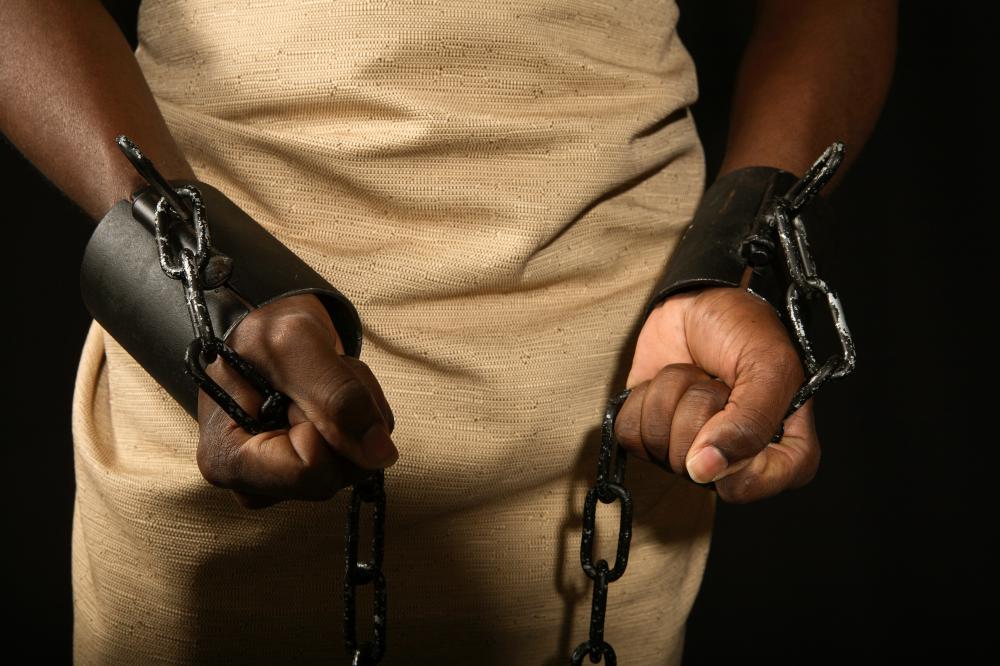At WiseGEEK, we're committed to delivering accurate, trustworthy information. Our expert-authored content is rigorously fact-checked and sourced from credible authorities. Discover how we uphold the highest standards in providing you with reliable knowledge.
What Is the Slavery Amendment?
Slavery was an everyday part of life in many parts of the United States prior to the Civil War. The legal end to slavery began with the Emancipation Proclamation in 1863 and was followed by the addition of the 13th Amendment to the United States Constitution in 1865. Known as the slavery amendment, the 13th Amendment legally prohibits slavery or involuntary servitude except when used as punishment for a crime.
The United States, like many nations, is governed by a federal constitution which provides the guiding principles upon which all laws must be founded. The founding fathers to the Constitution realized that, while the principles espoused in the Constitution itself were important and timeless, that future changes in the country may call for changes or additions to the Constitution. The founding fathers, therefore, provided a mechanism for amending the Constitution. Not long after the original Constitution was signed, the first ten amendments, now known as the Bill of Rights, were added to the Constitution. By 1805, the 11th and 12th amendments were also added.

As the issue of slavery began to divide the country, civil unrest turned to signs of civil war. The North was opposed to slavery while the South, historically dependent on slaves both inside and outside the home, felt that slavery was something that the government had no business legislating. Eventually, eleven southern states seceded in 1860 and declared themselves the Confederate States of America. By the following year, the country was involved in a full blown Civil War.

During the Civil War, President Abraham Lincoln made the Emancipation Proclamation, which freed slaves in the southern states that had attempted to secede. The Emancipation Proclamation was made pursuant to the war powers conferred on the President during a time of war. Once the war was over, President Lincoln wisely decided that an actual slavery amendment was needed to the Constitution due to his concern that the Emancipation Proclamation was legally only a temporary order with effect during the time of war. In addition, the Emancipation Proclamation only addressed ten states.

The slavery amendment was introduced in the Senate and passed on 8 April 1964. The House of Representatives then took another nine months to deliberate and finally passed the slavery amendment as well on 31 January 1965. It was officially adopted as the 13th amendment in December of 1865. The slavery amendment was the first new amendment to the Constitution in over 60 years and ushered in a time known as the Reconstructionist era.
AS FEATURED ON:
AS FEATURED ON:














Discuss this Article
Post your comments